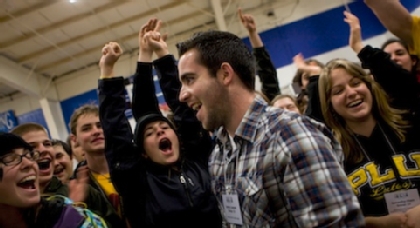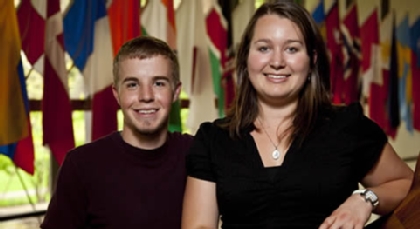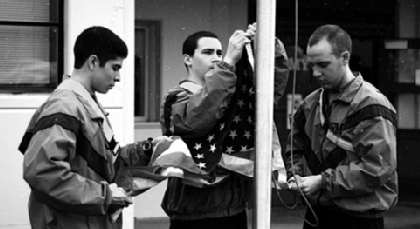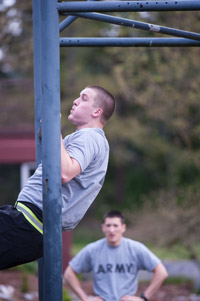Page 104 • (1,188 results in 0.039 seconds)
-
circumstances, faculty do not have time to learn such skills. In this blog post, I will provide some basic advice for engaging remote learners in emergency situations. Virtual Class Sessions Virtual class sessions are often appealing to faculty new to online teaching because it seems like the easiest way to recreate what they are doing in the classroom. However, teaching virtually requires a different approach than teaching face-to-face. If faculty choose to hold live, virtual class sessions, here are a few
-
best it provides a false sense of security. One way to discourage cheating is to design assessments that are unique and authentic, requiring higher order thinking skills like synthesis, analysis, or the creation of original content. For written work, Turnitin’s Originality Check (via Sakai Assignments) is a popular tool to discourage plagiarism and cheating. An option for multiple choice assessments is to use “question pools” where assessment questions are drawn randomly from a large pool of
-

teaching, like a skill for writing or a skill for critical thinking, never loses value. School systems will always need high-quality, passionate teachers. According to Department of Education data, in 2011, 48% of the teaching population had more than 10 years of experience. More recent data from 2017 suggest that the “average teacher” has 14 years of working experience.Work for diversity and positive social changeCompassion, empathy, communication, and respect are life skills that are learned early on
-

-Certification for International Students. All three programs prepare you with a strong theoretical foundation and real classroom experience. Our intense coursework and schedule provides you with rigorous preparation to gain the skills to become an effective teacher and educator. If you are interested in learning more about joining a community of education experts at PLU, we encourage you to schedule a one-on-one appointment with us! You can also request more information or start your application today.Tip
-

itself. I created the beginnings of a curriculum that highlights the intersection between mental skills and social-emotional learning for middle school PE. This project was something that I had the opportunity to talk about in my interviews and show that I was knowledgeable about social-emotional learning (which is a hot-topic in education right now) and had a little leg up with its application to mental skills.Impactful faculty memberDr. Karen McConnell was my faculty mentor for my applied project
-

production be strong was the limited scope of actors’ focus: not on memorization, blocking, or facial expressions, but on the soundscape of intonation, voice intensity, and diction. Nate Lovitt '22An English Writing major in a radio play? You bet! Nate has studied poetry with Professor Rick Barot and put those skills to work as The Poet reading “The Raven” for Twisted Tales of Poe. Nate noted that an interesting aspect of the show was learning to speak in meter. He said, “‘The Raven’ has a rhythm to it
-

Explore! because she felt that it could be an opportunity to help broaden her social skills, which she acknowledged would be an asset in her profession. Last-minute participant Amy Larson said that she was contemplating the most critical aspects of her future career and how to find a balance between the importance of a college education and real-world experiences like professional networking. Larson hopes to graduate with a degree in business and work with non-profit organizations. Explore! Student
-

the lives of students,” Buley said. In his free time in Venezuela, he hopes to pursue work with a community-based organization that provides educational opportunities to low-income communities. “Within my formal Fulbright assignment and in my volunteer pursuit I look forward to continuing to refine my leadership skills and to achieving ambitious and measurable results with students,” Buley said. Nicolette Paso – Research in Germany Paso will be moving to Leipzig, Germany to complete her Fulbright
-

various members of the cadre, or ROTC instructors, with different members being assigned different years. Twice a semester, and once during J-term, cadets go to Joint Base Lewis-McCord to exercise those class skills in the field, such as orienteering. Being a cadet in ROTC is only part of the students’ identity. “We’re not all Army all the time. That’s just part of what we do,” said cadet Chris Wolf, first-year student. “Mostly we’re just regular students at school.” They stand out because of their
-

will put their skills to the test at the Leadership Development and Assessment Course (LDAC) at Joint Base Lewis-McChord. They’ll sleep in the barracks and out in the field, and be assessed on their leadership ability which will be used along with their assignment preferences to determine where they’ll serve after graduation. Velásquez said he thinks he could be a good fit in any branch in the army, but he’s going to try to branch infantry and military intelligence. “Everybody that graduates from
Do you have any feedback for us? If so, feel free to use our Feedback Form.


